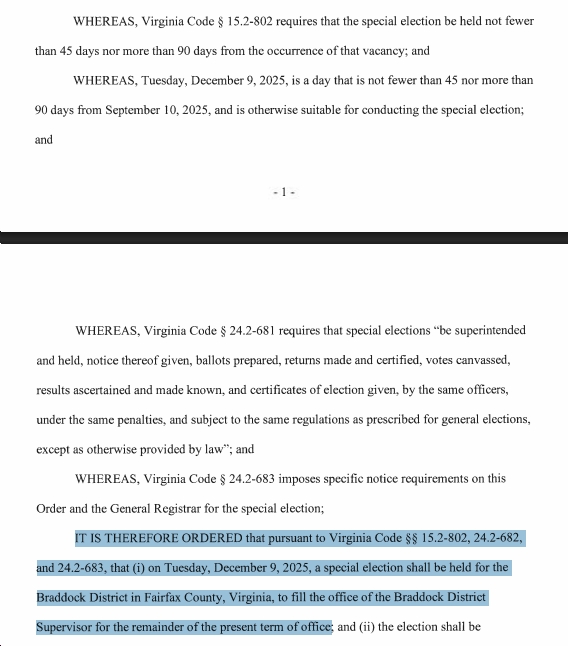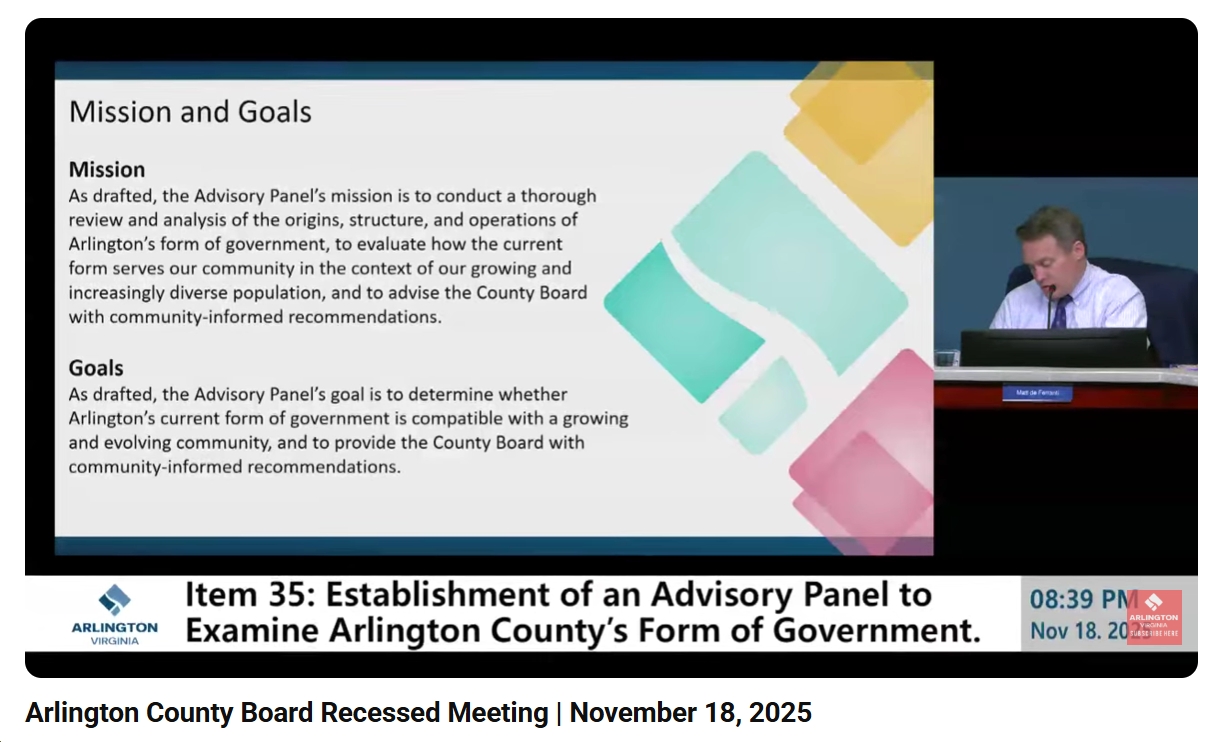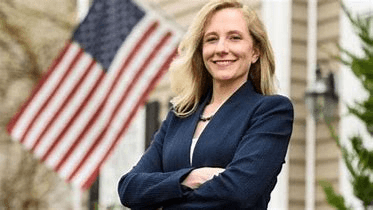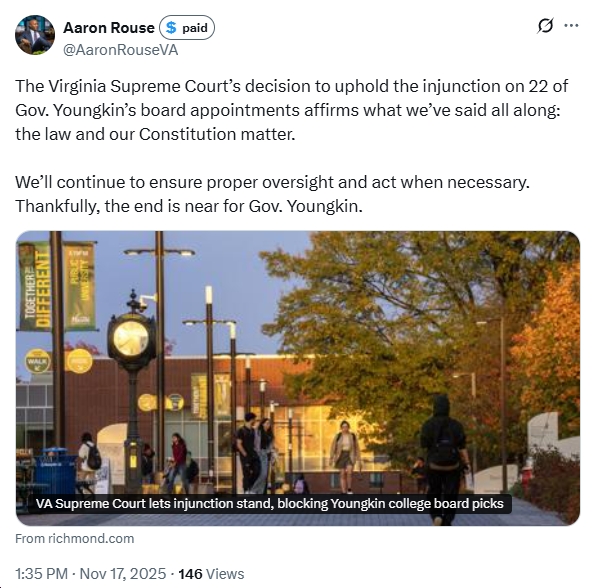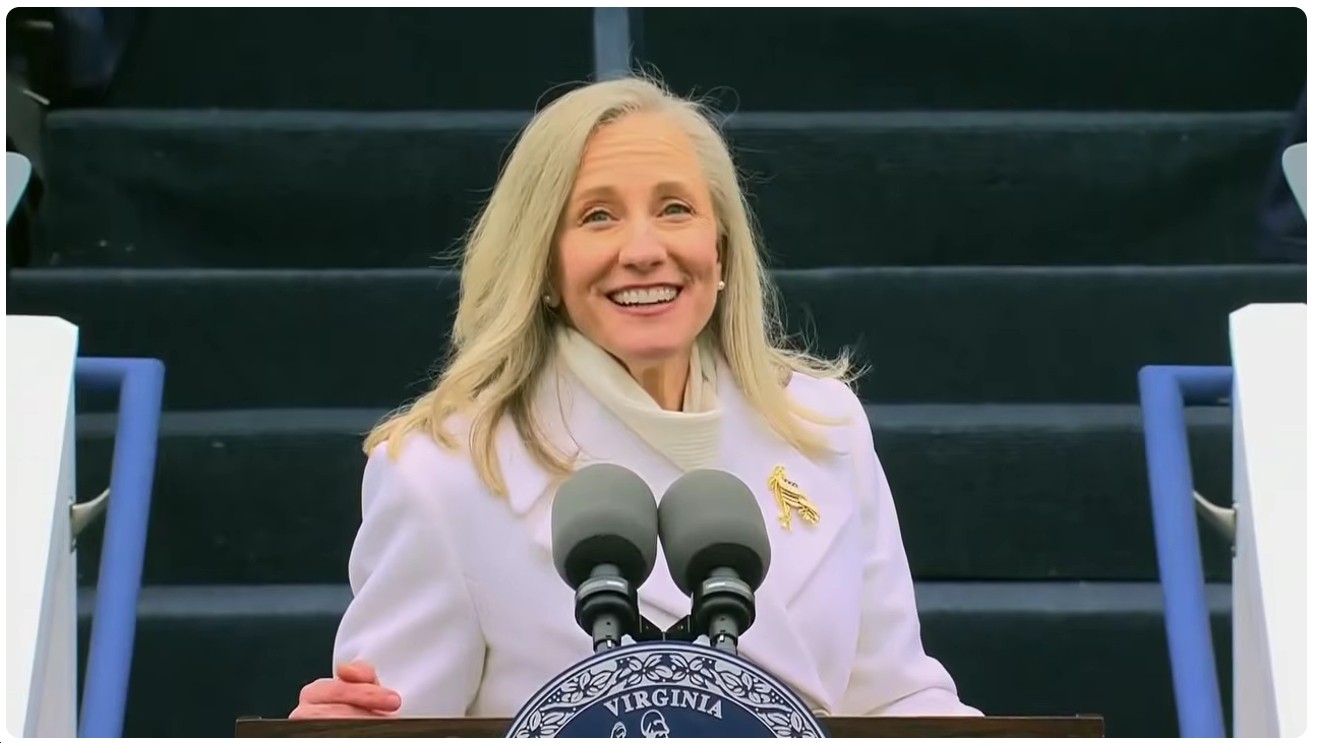Over the weekend, I posted a bunch of Fairfax County Democratic Committee (FCDC) Qs & As from the eight candidates for the Fairfax County Public School (FCPS) Board’s vacant, at-large seat. The candidates are, in alphabetical order: George Becerra, Marianna Du Bosq, Carolyn Hendler, Shaista Keating, Stacia Keel, Karen Keys-Gamarra, Michele Menapace and Abrar Omeish. The following supplemental materials were sent to me this afternoon by Karen Keys-Gamarra, candidate for the Democratic Party endorsement for Fairfax County Public School Board’s at-large seat. Note that the Fairfax County Dems will meet this Friday evening to decide which candidate to endorse…
Responses to Fairfax County Democratic Committee Questionnaire
With Supplemental Answers to Follow-On Questions from Constituents
- The quality of education depends on the interaction of student and teacher in the classroom. How can Fairfax County ensure we attract and retain exceptional teachers?
The Fairfax County Public Schools (FCPS) Strategic Plan (called Ignite) contains two components that address the attraction and retention of teachers: Caring Culture and Resource Stewardship. It is important that the Strategic Plan be a living document, not a glossy handout or pretty web page. I will work to ensure that the School Board prioritizes items and periodically reviews progress.
Follow-On Question: Can you expand upon this?
Supplemental Answer: Retaining our exceptional teachers is a priority. Let’s face it, teachers want wages that will sustain them within our community. Thus, we must take additional steps to make our wages competitive with that of surrounding locales. There is no substitute for a salary that pays the bills. We can also support teachers through existing programs such as the workforce housing program in Fairfax County. This program affords persons, such as teachers, access to housing at a percentage of fair market value. With respect to experienced teachers, communication will be key. It is important to establish a dialogue with our employees that allows honest feedback. The goal would be to allow staff members to communicate with the Administration and the Board anonymously. The purpose of collecting such data would be to allow us to improve in areas that may be difficult to discuss. I would also encourage a teacher/staff mentorship programs. Ideally, it may help to provide team support for teachers and especially new hires. Finally, we need to make sure that we provide support to teachers highlighted in the George Mason University (GMU) study. That report suggests that African American teachers may be experiencing greater difficulty in our schools. This issue should be investigated and oversight should be considered.
2. FCPS provides public education to an increasingly diverse population (e.g., religious and ethnic minorities, LGBTQ individuals, etc.). What policies would you support to meet the needs of those groups?
I would support policies that recognize our diversity and encourage a safe and respectful learning environment. The School Board made decisions in 2015 to protect the rights of transgender students and faculty. I will vigorously defend those policies and regulations whenever any challenges are brought to the Board.
Follow-On Question: How specifically would you try to better serve our increasingly diverse community?
Supplemental Answer: In addition to defending the FCPS policy of nondiscrimination, it will also be necessary to focus on diversity within the staff. The strategic plan implies that improving diversity within the staff is a priority. Unfortunately, the number of new hires for people of color does not necessarily reflect this. While I do not believe there has been an intentional effort to prevent diversity in our workforce, it behooves us to note that patterns of the past will not change without concerted effort. We need a centralized component to hiring and we cannot rely on each individual school to find out about possible new hires. Last year, FCPS implemented a three-day cultural competency training. While this is a good step, it is also a step that was taken years ago and then discontinued. It is time to have oversight that monitors how we hire staff and assist schools in implementing best practices in hiring.
- What is your view of the Portrait of a Graduate and its relationship to Standards of Learning (SOL) assessments?
The Portrait of a Graduate is a vision of five traits we want to see in every FCPS student. It makes no mention of the Standards of Learning (SOL) tests, which are the legacy of discredited education policy from the era of Governors Allen and Gilmore. Under Karen Garza, FCPS played an important role—in collaboration with the State Superintendent, the State Board of Education, the McAuliffe administration, and the General Assembly—to redefine high school graduation requirements and reduce the number of SOL tests. That effort is not finished, and I will work with School Board colleagues and the new Superintendent, Dr. Scott Braband, to continue to assert FCPS influence on state education policy.
- What strategies would you propose to close the achievement gap?
Addressing the Achievement Gap will require multiple strategies. First, we must implement high-quality early childhood education Pre-K readiness for all students. This will help close gaps in learning for some students who have not had an enriched learning environment prior to entering school. Secondly, we must also assist teachers and staff in sharing strategies that support our most vulnerable students. Some of our Title I schools have made significant progress, and we should continue this positive progress. Third, we must embrace our diversity and treat it as an asset to the learning experience through curriculum development. The more children can learn about issues and matters relevant to their own background, the more engaged they become. Lastly, we should consult with MSAOC in addressing the components of the GMU study.
Follow-On Question: What is the Achievement Gap?
The achievement gap refers to the disparity in measures of performance by race and ethnicity. President Obama described education equality as the civil rights issue of our time. His statement recognized a mandate from the Civil Rights Act of 1964, which tasked the Department of Education to examine educational opportunities from pre-school and beyond. The results of examinations and other indicators suggest that the gap in educational opportunities persists.
Fairfax County is no exception to this finding. Despite this, it is my fundamental belief that all children are capable of learning and achieving irrespective of socio-economic status, race or ethnicity. Inequity in the available programs and resources has become a significant concern for many Fairfax residents and this is a problem which must be addressed. Children in each pyramid should have access to advanced learning, STEM, and other such programs.
- FCDC adopted a position by which it “supports a fair and objective disciplinary process that assures rights of representation, recordation of all proceedings, and a hearing before an impartial decision maker. FCDC also supports parental/guardian notification and participation in all stages of student disciplinary proceedings. FCDC supports disciplinary decisions that are fair, impartial, without prejudice and take into account the total well- being of the student, his/her rights and the community’s interest in safe schools.” How well does FCPS policy coincide with the FCDC position and what steps, if any, are needed to ensure school discipline codes mirror the FCDC resolution?
FCPS made some necessary improvements to discipline policy and added common-sense supports to students under Karen Garza. Because of my experience as an Attorney who has worked to protect the best interests of children, I will bring an important perspective to the School Board’s oversight of discipline practices by FCPS. More specifically, the GMU study suggests that we still have work to do in this area. I believe it is the School Board’s responsibility to examine that study and take appropriate steps to reduce and eventually eliminate any form of disparate treatment.
- Are the school administration and the school board effective in incorporating recommendations from community—input activities—public hearings, advisory committees, task forces, town hall meetings, etc.? How would you stay connected with parents, teachers, students and the community at large to ensure the governance of FCPS is in line with community priorities?
Karen Garza embarked on a listening tour of the county during her first year as superintendent. I will encourage Dr. Braband to do the same, and will accompany him to each such event. Like him, I will be listening and learning about the concerns both common across the county, and unique to each district. It is important that we take steps to hear from all stakeholders including parents, teachers, staff and other members of the community. It is my strong belief that leadership really begins with listening.
Follow-On Question: How is the Board responding to that input regarding the George Mason study?
Supplemental Answer: My overall goal would be to thoroughly consider community input. In that vein, I am a member of the NAACP. If elected, I would partner with the School Board and the NAACP to implement the recommendations outlined in the report.
Furthermore, I would form a community partnership to help determine the best way to serve our diverse student body. I would also ask the Board to consider additional concrete steps, such as oversight to address these problems. Given the issues described in the GMU study that outline long term problems that have not been addressed, the Board should exercise great care in making sure that credible evidence is incorporated into its approach. Such consideration is necessary because our students are enriched when they can enjoy both a diverse student body and staff.
- What is your position on renaming JEB Stuart, Lee, and/or Woodson high schools?
I support the change of names of the schools mentioned above.
- The political and economic realities of Fairfax County today are challenging and cannot be dismissed: the chances of increased support from the state or federal government are practically nil; the numbers of students, especially those with greater educational needs are rising; demand for government services that impact our quality of life is constant; citizens expect top-quality schools which are a key driver of high property values; all county facilities—schools, libraries, parts, offices—require maintenance and operational upkeep; all public employees deserve living wages; and local property taxes simply can’t raise enough revenue to meet needs or expectations. How would you meet these challenges?
I support the position in the School Board’s legislative program, which calls for granting taxing authority to elected school boards. This change would align authority with responsibility, and convert School Board members from lobbyists to decision-makers with respect to school funding. We should also work to encourage greater dialogue between the School Board and the Board of Supervisors, as well as, state officials who impact budgetary decisions.


